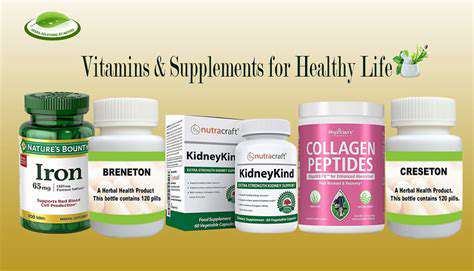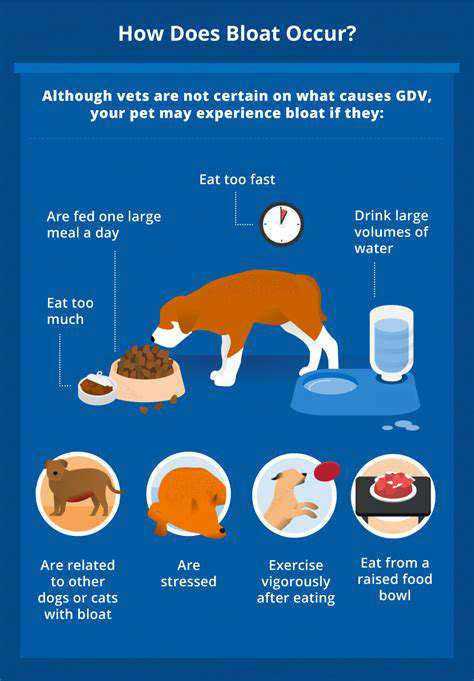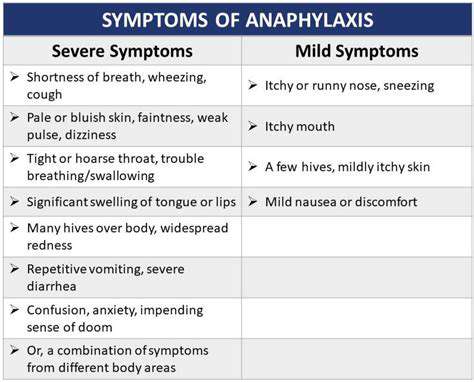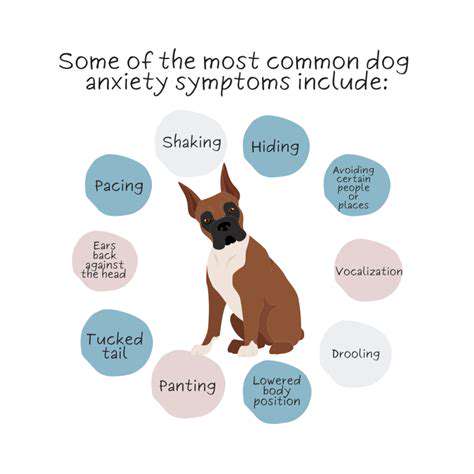Supplements for Pets: Do They Really Need Them?


The Risks and Considerations of Pet Supplements
Potential Benefits and Risks of Joint Supplements
Joint supplements, often marketed to alleviate pain and stiffness in aging pets, can offer potential benefits. These supplements frequently contain glucosamine and chondroitin, substances naturally found in cartilage, aiming to support joint health and reduce inflammation. However, it's crucial to understand that while these supplements might ease symptoms, they don't address the underlying cause of joint issues. Consult your veterinarian before introducing any joint supplement to determine if it's appropriate for your pet's specific condition and to rule out any other potential health problems.
There are potential risks associated with joint supplements, including digestive upset, allergic reactions, and interactions with other medications your pet might be taking. Always follow the recommended dosage carefully and monitor your pet closely for any adverse reactions. Remember, joint supplements are not a substitute for veterinary care, and a proper diagnosis and treatment plan from a vet are essential for managing joint problems effectively.
Nutritional Considerations and Potential Deficiencies
Pets, like humans, require a balanced diet to thrive. Sometimes, a pet's diet alone may not provide all the necessary nutrients, leading to deficiencies. Supplements can potentially fill these gaps, but it's crucial to understand that a balanced diet is always the primary approach. Consult your veterinarian to determine if your pet has any specific nutritional needs or deficiencies that supplements might address.
Introducing supplements without a veterinarian's guidance can be detrimental. A proper assessment by a vet is essential to identify the specific nutrient deficiencies and tailor a suitable supplementation plan. Overdosing on certain vitamins or minerals can lead to serious health complications in pets.
Dietary Restrictions and Allergies
Many pet supplements contain ingredients that might trigger allergic reactions or pose a risk to pets with specific dietary restrictions. Always check the ingredient list carefully and consult with your veterinarian before introducing any new supplement, especially if your pet has a history of allergies or sensitivities to particular foods or substances. Understanding your pet's dietary needs and potential allergies is paramount for safe and effective supplementation.
Certain supplements may contain ingredients like shellfish or dairy products, which can be problematic for pets with allergies or sensitivities. Always prioritize your pet's well-being and safety by carefully considering their individual needs and health conditions. A veterinarian can help you identify any potential risks or contraindications.
The Importance of Veterinary Consultation
Before introducing any pet supplement, a consultation with your veterinarian is absolutely essential. They can assess your pet's overall health, identify any potential underlying conditions, and determine if supplementation is necessary and safe. A veterinarian can recommend appropriate supplements and dosages tailored to your pet's specific needs.
Veterinarians have the expertise to evaluate your pet's health status, nutritional requirements, and potential risks associated with supplements. They can also monitor your pet's response to supplementation and make adjustments as needed, ensuring the safety and effectiveness of the treatment plan.
Potential Interactions with Medications
Some pet supplements can interact negatively with medications your pet may be taking. These interactions can range from mild to severe, potentially compromising your pet's health and well-being. Always inform your veterinarian about all supplements and medications your pet is currently receiving.
Comprehensive knowledge of potential interactions is crucial. A veterinarian can identify any potential conflicts and advise on the best course of action. This proactive approach ensures that supplements are used safely and effectively, avoiding any adverse reactions or complications.
Effectiveness and Quality of Supplements
The effectiveness of pet supplements can vary significantly depending on the quality of the product and the specific needs of your pet. Look for reputable brands with a strong track record of producing safe and effective supplements. Always choose supplements that are manufactured in facilities that adhere to strict quality control standards. This will help ensure you are getting a product that is both safe and effective for your pet.
Quality control and manufacturing standards play a significant role in determining the efficacy of a supplement. A well-researched and rigorously tested supplement is more likely to provide the desired results and support your pet's health needs effectively. Don't compromise on the quality of the supplement to ensure your pet's health and well-being.
Read more about Supplements for Pets: Do They Really Need Them?
Hot Recommendations
- Best Pet Bowls: Stainless Steel and Ceramic
- Pet Hydration: Why It's Crucial
- Stop Counter Surfing: Training Your Dog to Stay Off
- Pet Hypothyroidism: Symptoms and Management
- Signs of Pet Liver Disease: What to Watch For
- Pet Emergency Kits: What to Pack
- Dangers of Xylitol: Toxic to Dogs
- Dealing with Pet Diarrhea: When to See a Vet
- Preparing Pets for Travel: Tips for a Smooth Trip
- Pet Depression: Recognizing the Signs



